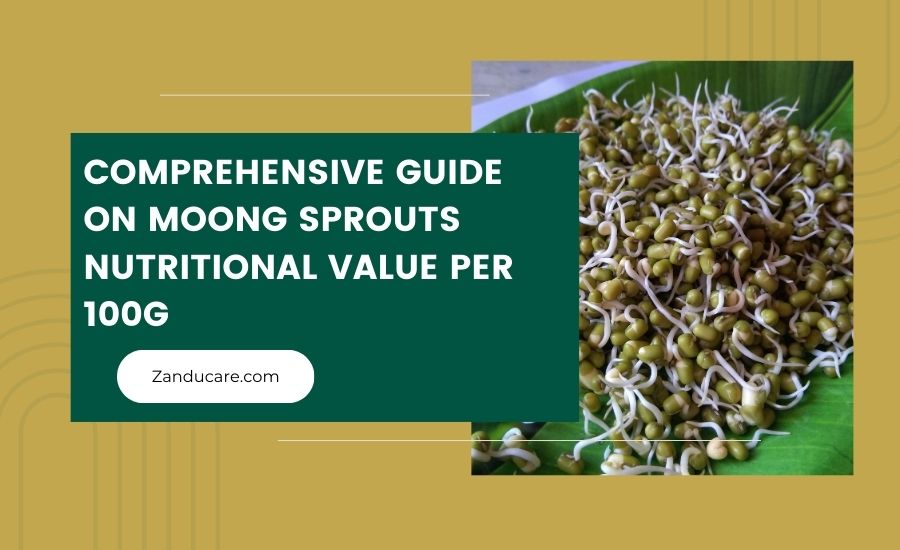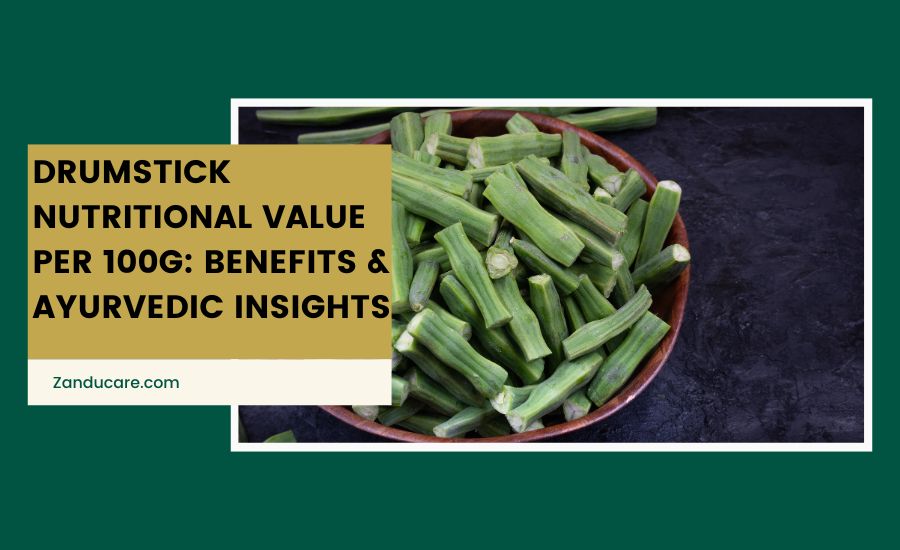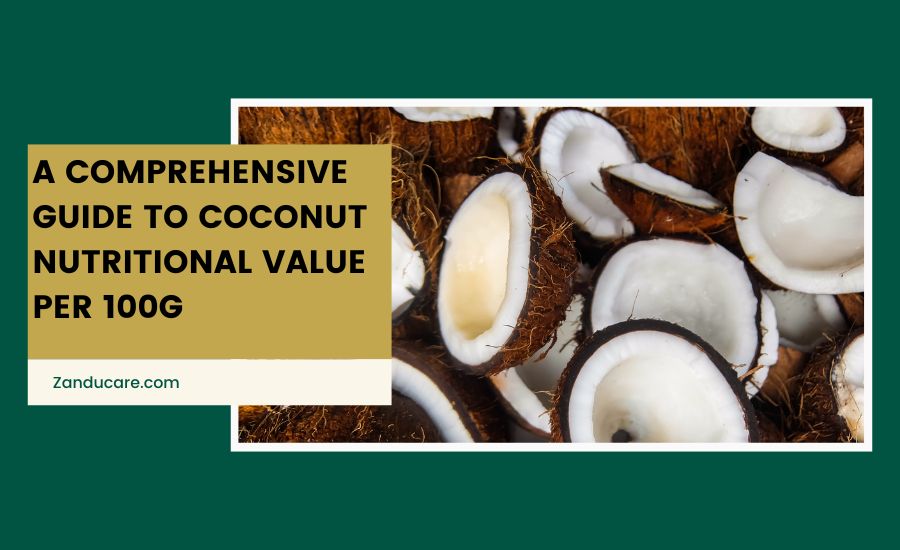
Moong Sprouts Nutritional Value, Protein, Calories Count Per 100g
Moong sprouts are also known as mung bean sprouts. They are popular because they contain a lot of nutrients with biological activities. This is what earns Vigna radiata the tag of superfood. These sprouts are crunchy, and they are found in large quantities in India, China, Southeast Asia, etc. Be it vitamins, minerals, and other beneficial nutrients, these sprouts have everything to offer. You need to learn the nutritional value per 100g to understand why you should add it to your diet.
|
Did you know?
|
Moong sprouts: An overview

Moong sprouts are the germinated form of mung beans. Sprouting is a method of germinating mung beans by allowing them to soak in water for at least 24 hours and making them grow tender white rootlets, which later develop into crunchy sprouts.
The Moong sprouts are common in Indian dishes such as salads, stir-fries, curries, etc. They also go well with desserts like tarts. They are known for their fine, mildly sweet taste and the fact that they are exceptionally flexible in culinary uses.
Nutritional breakdown of Moong sprouts per 100g
The nutritional value per 100g is as follows:
|
Nutrient |
Amount per 100g |
|
Calories |
30 kcal |
|
Protein |
3.04 g |
|
Carbohydrates |
5.94 g |
|
Dietary Fibre |
1.8 g |
|
Sugars |
4.13 g |
|
Fat |
0.18 g |
|
Vitamin C |
13.2 mg |
|
Vitamin A |
21 IU |
|
Folate |
61 µg |
|
Iron |
0.91 mg |
|
Magnesium |
21 mg |
|
Phosphorus |
54 mg |
|
Potassium |
149 mg |
|
Calcium |
13 mg |
As the table shows, moong sprouts are low in calories but rich in essential nutrients. They are a good source of protein, dietary fibre, vitamins, and minerals, making them a nutritious addition to any diet.
Health benefits of Moong sprouts
Now that we have seen the Moong sprouts' nutritional value per 100g, let’s see the number of health benefits that they offer -

- Promotes weight loss: The sprouting process also lowers the calorie count in Moongs and increases fibre, which makes you feel full for longer, which inadvertently helps weight management.
- Enhances digestion: Moong sprouts' high dietary fibre helps ease bowel movements and improve overall digestive health.
- Boosts immunity: Vitamin C is essential for a healthy immune boost, while Vitamin A prevents infection. They are all present in the Moong sprouts.
- Improves heart health: This includes lower blood pressure and reduced risk of heart disease due to beneficial nutrients such as magnesium and potassium in Moong sprouts.
- Regulates blood sugar levels: A low GI (glycemic index) makes it good for diabetes or controlling your blood sugar levels.
Moong sprouts in Ayurveda
In Ayurvedic medicine, Moong sprouts are highly regarded for their numerous health benefits and ability to balance the three primary doshas (Vata, Pitta, and Kapha).
Ayurvedic properties of Moong sprouts
According to Ayurveda, Moong sprouts are called superfoods because they have the following properties -
- Rasa (Taste): Sweet, Astringent
- Guna (Qualities): Light, Dry
- Virya (Potency): Cooling
- Vipaka (Post-Digestive Effect): Sweet
These properties make Moong sprouts particularly beneficial for individuals with Vata and Pitta imbalances, as they help to pacify these doshas and promote overall balance.
Ayurvedic benefits and uses
In Ayurvedic medicine, Moong sprouts are believed to have the following benefits and uses:
- Detoxification: Moong sprouts have a "Sattvic" (pure) effect on the body, helping to cleanse and detoxify the system. This is why they are used as a fresh salad vegetable in Western countries.
- Digestive support: Moong sprouts' light and dry qualities make them easy to digest, making them a suitable choice for those with digestive issues.
- Cooling effect: Moong sprouts' cooling potency can help alleviate heat-related conditions, such as inflammation, fever, and skin rashes.
- Immune-boosting: Moong sprouts' high vitamin C contenthelps to strengthen the immune system and protect against infections.
- Muscle building: Moong sprouts are a good source of plant-based protein, making them beneficial for muscle development and recovery.
How to prepare and consume Moong sprouts?

Preparing Moong sprouts at home is a simple process that yields a bounty of health benefits. The beans first soak for half a day or overnight allowing them to fully hydrate. Draining the water initiates the process of germination as the soaked mung beans are transferred to a sprouting jar exposed to intermittent rinsing.
Once reaching maturity, the sprouts stand ready for various applications to please the palate and nourish the body. They suit both raw consumption and gentle cooking, preserving texture and maximising nutritional value, whether tossed into salads or added at the end of the process of making curries, stir-fries, and soups.
Versatile Moong sprouts fit readily into dishes, imparting their nourishing refreshment through simple, satisfying preparations.
Also, check calories in:
Conclusion
Moong sprouts are rich in vitamins, minerals, and much more, so we say they are a powerhouse of nutrients. They have a low-calorie count and are rich in fibre and protein, making them good for your health and overall well-being.
According to Ayurveda, Moong sprouts help balance three fundamental doshas and overall health. Moong sprouts are a powerhouse of health, and including these in your diet can accelerate weight loss, help with better digestion, boost immunity, and improve heart health.
Knowing the incredibly nutritious nature of Moong sprouts and their adaptability in several dishes, one can make wise decisions to include this superfood and embrace its many health benefits.
FAQs
1. What is the nutritional value of Moong Sprouts per 100g?
The Moong sprouts nutritional value per 100g includes 30 calories, 3.04g of protein, 5.94g of carbohydrates, 1.8g of dietary fibre, and a range of vitamins and minerals.
2. How do Moong Sprouts benefit overall health?
Moong sprouts offer numerous health benefits, including promoting weight loss, enhancing digestion, boosting immunity, improving heart health, and regulating blood sugar levels.
3. Are Moong Sprouts good for weight loss?
Yes, Moong sprouts are an excellent choice for weight loss due to their low-calorie content and high fibre, which can help you feel fuller for longer.
4. What are the Ayurvedic benefits of Moong Sprouts?
In Ayurvedic medicine, Moong sprouts are believed to have a "Sattvic" (pure) effect, helping to detoxify the body, support digestion, provide a cooling effect, boost immunity, and support muscle building.
5. How can I incorporate Moong Sprouts into my diet?
Moong sprouts can be enjoyed raw, lightly steamed, or cooked in various dishes, such as salads, stir-fries, soups, and curries. They can be added towards the end of the cooking process to preserve their crunchy texture and nutritional value.
6. How do Moong Sprouts compare to other sprouts?
Compared to other sprouts, Moong sprouts are generally lower in calories, higher in protein, and have a unique set of vitamins and minerals, making them a nutritional powerhouse.
7. Can Moong Sprouts help in regulating blood sugar levels?
Yes, Moong sprouts have a low glycemic index, making them suitable for individuals with diabetes or those looking to maintain healthy blood sugar levels.
8. What is the best way to store Moong Sprouts?
Moong sprouts should be stored in the refrigerator, either in a sealed container or wrapped in a damp paper towel, to maintain their freshness and crispness.
9. How can I make Moong Sprouts at home?
To make Moong sprouts at home, soak the mung beans in water for 6-8 hours or overnight, then drain the water and transfer the soaked beans to a sprouting jar or container. Rinse the beans twice daily and allow them to sprout for 1-2 days.
10. Are there any side effects of consuming Moong Sprouts?
Moong sprouts are generally safe to consume, but in some cases, they may cause digestive issues, such as gas or bloating, especially if consumed in large quantities or by individuals with sensitive digestive systems.
11. Can Moong Sprouts be eaten raw?
Yes, Moong sprouts can be enjoyed raw, providing the maximum nutritional benefits. They have a pleasant crunch and mild sweetness.
12. How do Moong Sprouts contribute to muscle building?
As a good source of plant-based protein, Moong sprouts can contribute to muscle building and repair. The protein content increases by 30% during the sprouting process.
References
- Moong sprouts are also known by the name of mung bean sprouts. They are popular because they contain a lot of nutrients with biological activities. (https://www.ncbi.nlm)
- This is what earnsVigna radiata the tag of superfood.These sprouts are really crunchy, and they are found in large quantities in India, China, South-East Asia, etc. (https://www.ncbi.nlm)
- Moong sprouts have a "Sattvic" (pure) effect on the body, helping to cleanse and detoxify the system. This is why they are used as a fresh salad vegetable in Western countries. (https://www.ncbi.nlm)
- Moong sprouts are a good source of plant-based protein, making them beneficial for muscle development and recovery. (https://www.ncbi.nlm.nih.gov/)






Leave a comment
This site is protected by hCaptcha and the hCaptcha Privacy Policy and Terms of Service apply.